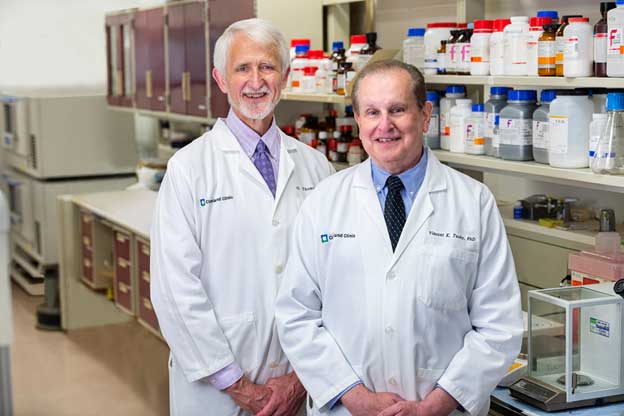
By Francis Allan L. Angelo
Researchers from the global health system Cleveland Clinic have launched the subsequent phase of their innovative study on a vaccine aimed at preventing triple-negative breast cancer, the most aggressive and lethal form of the disease.
Funded by the U.S. Department of Defense, the new phase 1b study will enroll individuals who are cancer-free and at high risk of developing breast cancer. These participants have chosen to undergo a prophylactic mastectomy voluntarily to lower their risk.
Such individuals typically carry genetic mutations that increase their likelihood of developing triple-negative breast cancer or have a high familial risk for any type of breast cancer. Conducted at Cleveland Clinic’s main campus in Ohio, U.S., the study aims to evaluate safety and monitor the immune response.
The study will include approximately 6-12 patients and is expected to conclude by the end of 2023. Participants will receive three vaccinations, spaced two weeks apart, and will be closely monitored for side effects and their immune response.
This phase 1b clinical trial, conducted in partnership with Anixa Biosciences, Inc., is a continuation of the phase 1a study, which began in 2021 and is slated for completion in the fourth quarter of 2023. The phase 1a trial includes patients who have completed treatment for early-stage triple-negative breast cancer within the past three years and are currently tumor-free but at high risk for recurrence.
G. Thomas Budd, M.D., from Cleveland Clinic’s Taussig Cancer Institute and the principal investigator of the study, said, “Triple-negative breast cancer is the type of disease for which we have the least effective treatments. In the long term, we hope this vaccine will serve as a true preventative measure, administered to cancer-free individuals to deter the development of this highly aggressive disease.”
Dr. Budd emphasized the urgent need for better treatments for triple-negative breast cancer, which lacks the biological characteristics that typically respond to hormonal or targeted therapies. Though it represents only about 12% to 15% of all breast cancers, triple-negative breast cancer accounts for a disproportionately higher percentage of breast cancer deaths. It occurs twice as frequently in Black women, and roughly 70 to 80% of the breast tumors in women with BRCA1 gene mutations are triple-negative.
The vaccine originates from pre-clinical research by the late Vincent Tuohy, Ph.D., who held the Mort and Iris November Distinguished Chair in Innovative Breast Cancer Research at Cleveland Clinic’s Lerner Research Institute. Dr. Tuohy was a remarkable and dedicated scientist whose decades of pioneering research led to the development of this investigational vaccine.
The vaccine specifically targets the lactation protein α-lactalbumin. This protein typically disappears from normal, aging tissues after lactation but is found in the majority of triple-negative breast cancers. The vaccine’s goal, should breast cancer develop, is to trigger the immune system to attack the tumor and inhibit its growth.
Dr. Tuohy’s research demonstrated that activating the immune system against α-lactalbumin was safe and effective in preventing breast tumors in mice. His work, initially published in Nature Medicine, received funding partly from philanthropic donations from over 20,000 people in the past 12 years.
“It was Dr. Tuohy’s aspiration that this vaccine would showcase the potential of immunization as a novel method to combat breast cancer, and that a similar strategy might one day be applicable to other types of cancer,” Dr. Budd concluded.






















